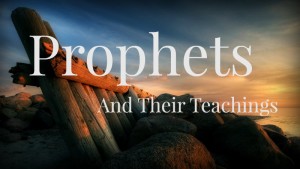One of the basic requirements of a holy being is being reliable. The consistency of God, in his behavior and attributes is a very basic part of what makes him divine. This week we’ll look at just a few of the character traits that make the Lord trustworthy, reliable, and worthy of our faith.
Eternal vs. mortal view
If there is any absolutely consistent aspect of behavior in mortality, it is our inconsistency of behavior. As we mature and experience new things our perspective changes and our perspective influences our behavior and attitudes. Just look at the track record of someone in politics. At the beginning of their time in office they act like they have it all figured out. They make promises and pursue a particular course of action. Within a few years they are spouting different opinions, voting contrary to their previously held opinions, and are supporting things they promised they would never consider supporting. That is not unusual.

Capitol Building, Washington DC
What happened to the politician? They got into office and learned the sad truth that virtue is not rewarded, that keeping hastily made promises can get you into trouble, and that there are people with great power that you have to work around to get anything done.
The experience of the politician is much like what we all go through as we enter the adult world. What seemed so simple and straight forward as children now looks almost moronic in its naiveté. We’ve probably all seen examples of how the 16-20 year old knows more than even the most wizened of the elderly. That doesn’t mean we were wrong in our opinions at that age, it just means that we have learned things we didn’t know before, and our perspective has drastically altered since our younger days. What was pure and absolute becomes softened and laced with tolerance.
This is the quality of mortality that plagues us. We are naturally shortsighted and simple in our thinking. We make mistakes precisely because we don’t see and understand the outcomes of our choices. We don’t see the complicating factors that will affect our future choices. As we learn more and experience more, we are able to base our decisions on a higher, and more inclusive set of ideals and moral principles.
This is what separates us from God in the realm of decisions and behaviors. He already knows all things. He doesn’t worry about making a decision based on faulty logic, incomplete information, or not knowing or understanding the future outcomes of such a decision. He already knows it all.
I haven’t ever been able to find the original source for this quote, but I have seen it quoted a lot. I found the text for the quote from Elder Jeffery R. Holland on www.goodreads.com.
“The FUTURE of this world has long been DECLARED; the final outcome between GOOD and evil is already KNOWN. There is absolutely no question as to who WINS because the VICTORY has already been posted on the SCOREBOARD. The only really strange thing in all of this is that we are still down here on the FIELD trying to decide which TEAM’S JERSEY we want to wear!”
This is so true. The Lord has already claimed the victory over death and has opened the doors for salvation. But here we are each day still trying to decide whether it is better to follow our appetites or the Lord’s law. One leads us to the declared victory, and the other to a great deprivation of blessings.
Newton’s law

Sir Isaac Newton
Sir Isaac Newton gave us three laws of motion. The first law states that “Every object in a state of uniform motion tends to remain in that state of motion unless an external force is applied to it.” Surprisingly enough (at least for me), this seems to also apply to behavior.
When the Lord makes a declaration about the results of our behavior it is absolute, but based on the current circumstances. If the current circumstances don’t change, what the Lord has declared will remain in force indefinitely. If the behavior of the person changes then so too will the outcome. We become the external force that changes our motion. But the important thing here is that the Lord always speaks in an eternal voice. He always uses the term “forever” when he makes promises. This includes the promises we receive in mortality.
Examples of “eternal speak”
Eternal speak is my own term for how the Lord speaks to us. He doesn’t talk to us in terms of this month or this year, but always and forever in terms of eternal outcomes. Here are two scriptural sources that illustrate this point, one from the Old Testament, and the other from the Book of Mormon.
1 Kings 9:4-9
4. And if thou wilt walk before me, as David thy father walked, in integrity of heart, and in uprightness, to do according to all that I have commanded thee, and wilt keep my statutes and my judgments:
5. Then I will establish the throne of thy kingdom upon Israel for ever, as I promised to David thy father, saying, There shall not fail thee a man upon the throne of Israel.
6. But if ye shall at all turn from following me, ye or your children, and will not keep my commandments and my statutes which I have set before you, but go and serve other gods, and worship them:
7. Then will I cut off Israel out of the land which I have given them; and this house, which I have hallowed for my name, will I cast out of my sight; and Israel shall be a proverb and a byword among all people:
8. And at this house, which is high, every one that passeth by it shall be astonished, and shall hiss; and they shall say, Why hath the Lord done thus unto this land, and to this house?
9. And they shall answer, Because they forsook the Lord their God, who brought forth their fathers out of the land of Egypt, and have taken hold upon other gods, and have worshiped them, and served them: therefore hath the Lord brought upon them all this evil.

Solomon’s Temple
In verse five he promises Solomon that David’s line will remain as the kings over Israel forever. But there is always this caveat, that if their behavior changes from obedience to disobedience then that will change their promised outcome. In this case, the family line is told that turning away from worshiping God will not only remove them from ruling Israel, but that the Lord would cut off all of Israel and that all the people around them would marvel at the greatness of their fall from favor with their God.
My point in this instance is that if they had remained obedient it would have led to a completely different future for them and their descendants. If they had been obedient down through the ages, we would still have a king in Israel descended from David’s line. That was the promise.
Now let’s look at the Lord’s promise to Lehi. The Lord made a promise that to the obedient this land they had been brought to would be a land of liberty for them forever. The righteous would be “blessed forever.” To the wicked, however, the land would be cursed for their sakes. For their own sakes they would be brought down into captivity or be destroyed.
Again, the Lord is prepared to honor either future outcome. But he does not control us or our behavior, so all he can do is tell us what lies in store for us if we persist along a given path of behavior.
2 Nephi 1:5-7
5. But, said he, notwithstanding our afflictions, we have obtained a land of promise, a land which is choice above all other lands; a land which the Lord God hath covenanted with me should be a land for the inheritance of my seed. Yea, the Lord hath covenanted this land unto me, and to my children forever, and also all those who should be led out of other countries by the hand of the Lord.
6. Wherefore, I, Lehi, prophesy according to the workings of the Spirit which is in me, that there shall none come into this land save they shall be brought by the hand of the Lord.
7. Wherefore, this land is consecrated unto him whom he shall bring. And if it so be that they shall serve him according to the commandments which he hath given, it shall be a land of liberty unto them; wherefore, they shall never be brought down into captivity; if so, it shall be because of iniquity; for if iniquity shall abound cursed shall be the land for their sakes, but unto the righteous it shall be blessed forever.
Final Thoughts
We can trust the Lord. When he makes a promise that promise is iron clad. It cannot be broken, except by us. He never breaks his word. Obeying his commandments helps us to learn to be more consistent in our own behavior. Commandments teach us to be more tolerant and filled with love for others. They help us to learn to think and behave more consistently, like God.
Without consistency in behavior and attitudes, we wouldn’t be able to trust in God. He would be capricious and untrustworthy. In other words, he would cease to be God. In Mormon 9:9-10 we read:
9. For do we not read that God is the same yesterday, today, and forever, and in him there is no variableness neither shadow of changing?
10. And now, if ye have imagined up unto yourselves a god who doth vary, and in whom there is shadow of changing, then have ye imagined up unto yourselves a god who is not a God of miracles.

To read more of Kelly Merrill’s articles, click here.
One of the critical building blocks of our faith in God is this consistency and unvarying nature that allows us to place all our trust in Him and his word. It is true that mankind is fickle, but we can trust that the Lord is not. When we feel unsure or lost, we can turn to Christ and our Father for direction, through the Holy Ghost. These three men will never let us down, never falter in our support, and never lead us astray. Their love is absolute, and their devotion to us eternal. They have seen the end from the beginning and know the result of any behavior.
As Elder Holland stated, the victory has been declared. The outcome of mortality is certain. Now all we have to do is decide whose jersey we want to put on.
About Kelly P. Merrill
Kelly Merrill is semi retired and writes for https://gospelstudy.us. He lives with his wife in Idaho. His strength is being able to take difficult to understand subjects and break them down into understandable parts. He delights in writing about the gospel of Christ. Writing about the gospel is his personal missionary work to the members of the Church and to those of other faiths who are wanting to know more about Christ's gospel and His Church.






I surely enjoyed reading your articles today. Thank you. I wish I could translate into my language for their enjoyment.